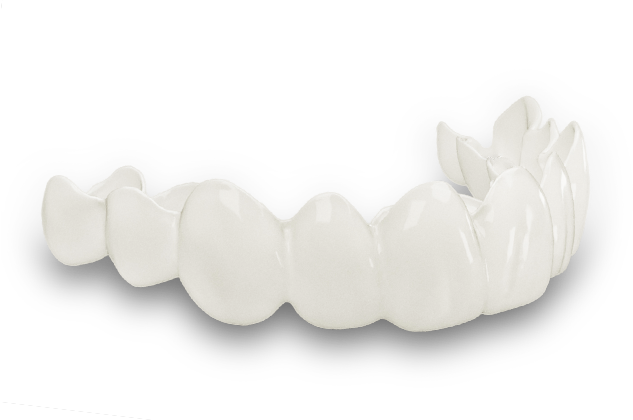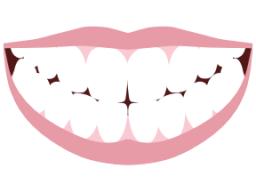How to Make Teeth White: Methods and Alternatives
Alternative Solutions to Teeth Whitening
Whiter teeth appeal to a lot of people. Teeth whitening has become more and more popular, especially thanks to the influence of celebrities and people in the media with bright smiles. Many people turn to teeth whitening methods to help them get whiter teeth, but it's important to understand how these procedures work. There are potential downsides to teeth whitening, especially if you have it done regularly. Before you decide whether to get your teeth whitened, you should be sure that you know about any drawbacks and whether there might be a better alternative to get the smile that you want.
How To Avoid discoloration?
Before we delve into the world of whitening products and bleaching agents, it is important to understand what may cause discoloration and how to deter yellow teeth. Although a combination of several factors may be the cause of tooth discoloration, there are some things you could avoid in your day-to-day life that will help avoid discoloration.
- Foods and Beverages: It is well known that tomato based foods such as pasta dishes and currys can lead to discoloration. Drinks such as tea, coffee and wine contain a compound called tannin which, over time, will discolor and individuals teeth
- Tobacco Products: Tobacco contains tar which over time will leave your teeth and other parts of your body yellow. Not only can tobacco affect the shade of your teeth, it can also discolor your gums - making them black in color.
- Plaque: Hardened-formed or even daily plaque can have an impact on your dental shade. It is important to pay regular visits to your dental hygienists
Teeth Whitening Methods
Anyone who wants to whiten their teeth can explore several different methods for doing so. Some teeth whitening techniques can be carried out at home, while others need to be performed by a dentist or someone trained in professional teeth whitening. Different methods have varying levels of effectiveness and their own pros and cons to consider.
Whitening toothpastes
You have probably seen whitening toothpastes available to buy in your local supermarket or chemist's. Plenty of toothpaste brands have a product that they market as a whitening toothpaste, but do they really work? They might promise to make your smile whiter, and even try to convince you using a study with small sample sizes, but the truth is that whitening toothpastes are not an effective method of whitening your teeth. You're unlikely to see much difference in color from using a whitening toothpaste.
Whitening rinses
Another option that is available to use at home is whitening rinses. These can be used like a mouthwash and are designed to whiten your smile using ingredients such as hydrogen peroxide. At the same time, they can help to reduce plaque buildup like a normal mouthwash can. Whitening rinses can have an effect on the color of your teeth, but it can take several months before you begin to see any difference that the product might have.
At-home bleaching
Bleaching kits can be bought to use at home, which allows you to bleach your own teeth without going to the dentist. They usually include bleaching strips or trays that you apply to your teeth. While these kits can be effective for getting a white smile, there are also several reasons to be wary of them. Firstly, they are not custom-made to fit you, so they may not fit your teeth correctly. This could mean that they are applied incorrectly, either not covering your teeth properly or overlapping onto the gums. The result of this can range from uneven results to burns on your gums. As these kits can run you several hundreds of pounds, you could be spending a lot of money to not only get poor results but also buy a dangerous product.
A safer alternative is to buy this type of product from a dentist. They can also supply whitening trays that you can use at home. The difference is that they can make the trays to fit your teeth, which ensures they are safer. You also have your dentist to supervise the treatment, and you can make an appointment if you have any concerns. However, teeth whitening is only available from private dentists, and you can expect to pay for the benefit of their professional services. In addition to paying for the whitening kit, you'll also be paying several hundred more for their time. You may also need to top up your treatment with regular bleaching to help keep your teeth white.
Laser bleaching
Laser teeth whitening is another service that dentists might offer for people who want to treat stained teeth. This is a teeth whitening procedure that involves a bleaching agent that is applied to your teeth and then activated using a light or laser. It's generally safer than using an at-home whitening kit, and you can start to see results quickly.
The gums and lips are protected, then a whitening gel is applied and activated by a light or laser. Teeth whitening sessions such as these often take around an hour, and you can see immediate results when you're finished.
Of course, laser bleaching is not the cheapest option. Your teeth won't stay white forever, either, which means that you will likely require further treatment later. The cost will vary, but you could be looking at a teeth bleaching cost starting from around $500 to $600 for laser whitening with Philips Zoom technology. One potential side effect of the treatment is sensitive teeth, and problems with gums or other complications can also be a risk.
While there are a number of methods for making yellow teeth whiter, it's important to be aware of all the facts. Whitening treatments might not be for you, especially if you're looking for a more affordable option to get whiter teeth. The risks involved in some whitening treatments also means that they may not be worth the price. Other treatments might not even be effective, even if they're less expensive.
When to Avoid Dental Bleaching
While bleaching your teeth can be effective, depending on the method that you choose, it's not right for everyone. Some people should avoid dental bleaching to protect their teeth. The people who might not be suitable for teeth whitening treatments include:
-
People with allergies or sensitive teeth: If you have sensitive teeth or an allergy to peroxide, teeth whitening treatments might not be for you. It could cause pain in the gums or damage the enamel of your teeth.
-
People with gum disease, cavities or worn enamel: If you have any of these problems, teeth bleaching could cause pain and discomfort due to the inner part of the tooth being exposed. It's important to make sure that you have healthy teeth before undergoing any bleaching treatments.
-
People with dental work made of composite resin: composite materials will not bleach when using a bleaching agent. This means that your natural teeth may be whiter, but your dental work will stay the same because it was made to match the color of your natural teeth at the time it was inserted.
Before you have any teeth whitening treatments, it's important to speak to a dentist. They can let you know if you're suitable for bleaching procedures, and which methods are the safest and most effective to use.
Any dental treatments made from resin composite materials will not whiten when using any form of bleaching agent. Instead, the resin will remain the same color as it was previously which will stand out against your natural whiter teeth.
How Long Do White Teeth Last?
Unfortunately, whitening treatments do not last forever! Over time your favourite food and drink will stain your teeth once more, causing discolored and yellow teeth. This will only lead to paying several more visits to your whitening dentist adding to your dental bill even more!
To make your teeth bleaching treatments last as long as possible, it is recommended that you avoid any tomato based foods on top of avoiding drinking coffee and smoking cigarettes.
Expectations vs Reality
Individuals with yellow teeth will find whitening far easier and more beneficial than individuals suffering from medicinal side affects. The grey/blue discoloration caused by the medicine will need up to 6 months of vigorous whitening treatment performed by a whitening professional. Even then, having a perfectly white smile or even removing any discoloration isn’t guaranteed.
Those expecting instantly whiter teeth or an everlasting hollywood white smile, may be disappointed by the results.
It is advised that a healthy expectation is that your aim should be slightly whiter than the whites of your eyes. Those looking for a Hollywood, bleached white smile may be disappointed with the results of teeth whitening unless strong and lengthy applications are used.
Use instasmile for a Brighter Smile
Teeth whitening treatments are not the only options available for getting a white smile. If you're looking for another way to brighten your smile, you should consider clip-on veneers. Clip-on veneers instantly transform your teeth, giving you the color that you want. You can choose which shade you want when you have them made, and they will arrive at your door ready to use when they have been made.
When you choose instasmile, you get custom-made clip-on veneers that are hand-finished to ensure beautiful aesthetics. Each set of veneers is unique to fit your teeth and give you the look that you want. You can insert and remove them whenever you want to, which means you can instantly get a whiter smile and keep your smile looking bright too.
There's a fantastic range of benefits that you can enjoy when you choose instasmile clip-on veneers:
Get a whiter smile fast
Some whitening treatments can take months before they are effective, while others might not even be effective at all. If you want to be able to get a whiter smile whenever you want, clip-on veneers are ideal. Once you order your veneers, they will take just two or three weeks to arrive. You then have a set of clip-on veneers that you can wear whenever you want.
Make brighter teeth more affordable
One of the top advantages of choosing clip-on veneers is that it's more affordable than teeth whitening. Compared to both at-home teeth whitening kits and professional laser whitening, you can save money by choosing clip-on veneers. You make just one payment, and you can even spread the cost if you want to, and then you have your veneers to keep. There's no need to pay for repeated treatments. You can save hundreds of pounds, if not even more.
No visits to the dentist
The safest and most effective bleaching method is visiting your dentist, either for custom bleaching trays or laser whitening. But this can require you to keep going back to your dentist, which takes time and money. If you use instasmile, you can do everything from home. You will be sent what you need to take impressions of your teeth, and you will send us photos of your impressions for approval. After your impressions have been approved and you have sent them to us, we'll send your completed custom-made veneers to you.
Non-invasive and no chemicals
Choosing instasmile means no invasive dental procedures, and no use of potentially dangerous chemicals. You get a pair of comfortable veneers that fit securely because they're made just for you. Teeth whitening procedures aren't necessary if you want whiter teeth. Clip-on veneers from instasmile give you an affordable and effective alternative.
The All-in-One Dental Cosmetic Solution
Suffering from more than just discoloration? instasmile is perfect to cover missing, cracked or broken teeth! With our cover-all veneer, we offer a multi-solution to all cosmetic dental problems with
- One fixed price.
- No frequent visits to the dentist
- No individual cost for each problem and better still - you wont need to leave the comfort of your home!
Not only is your clip-on veneer the all in one solution to several dental cosmetic needs, it is an immediate alternative that can be removed at night and clipped back into place in the morning. Ready to save thousands on your perfect smile? Click ‘Get Started’, answer a few quick questions and we will tell you if you’re suitable, which products we recommend for you, and view and select from our shade options.

Are you ready for your affordable smile transformation with no surgery and no dentist visits?
Click below to get started and see if you're suitable!
GET STARTED







 UK
UK
 USA
USA
 Australia
Australia
